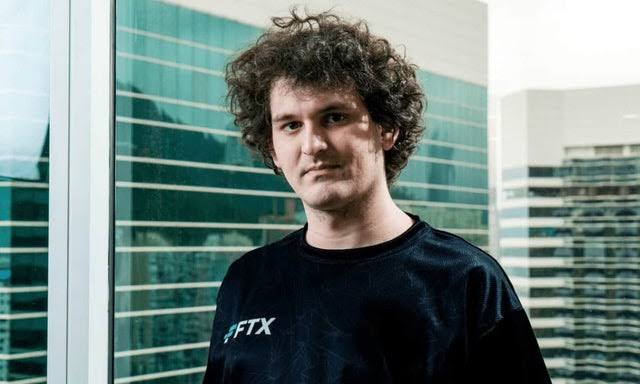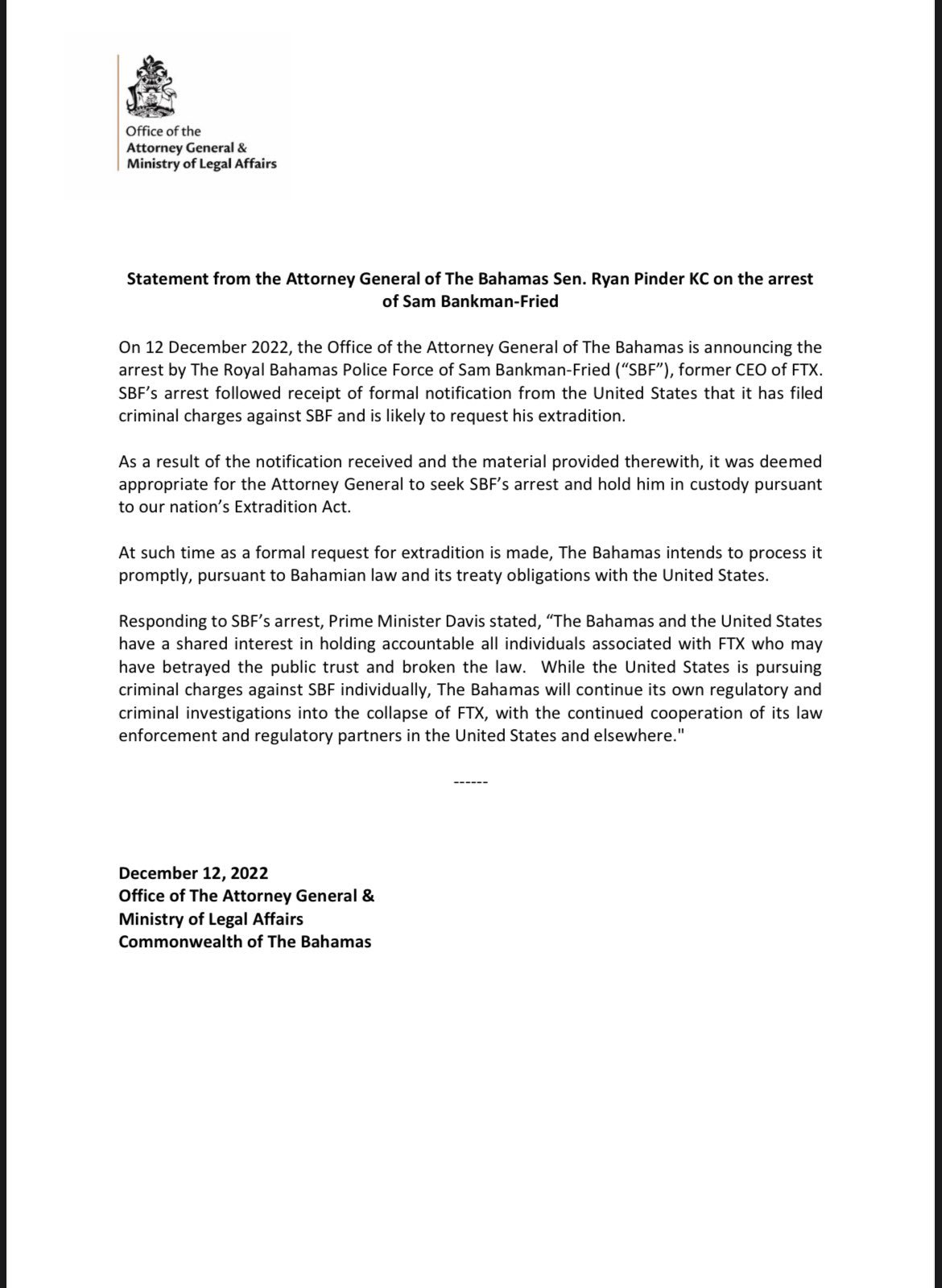The co-founder and former CEO of the bankrupt cryptocurrency trading company FTX was arrested in the Bahamas after the US attorney for the Southern District of New York shared a sealed indictment with the Bahamian authorities.

Sam Bankman-Fried was detained by Bahamas police at the request of the American government just one day before the former CEO of FTX was scheduled to testify before Congress. His arrest is the first explicit action by authorities to hold individuals responsible for the multibillion-dollar collapse of FTX last month.
Bankman-Fried was detained by the Royal Bahamas Police Force after receiving official information from the US government that it has brought criminal charges against him according to a Dec. 12 statement from the Bahamas Attorney General (AG) and Minister of Legal Affairs, Ryan Pinder.

The allegations against Bankman-Fried include wire and securities fraud, conspiracy to commit wire and securities fraud, and money laundering, according to a Dec. 12 New York Times report. Bankman-Fried’s extradition is likely to be requested by the United States, and Bahamas is anticipated to “promptly” handle any such request.

The US and Bahamas have “a shared interest in holding accountable all individuals associated with FTX who may have betrayed the public trust and broken the law,” according to a statement from Bahamian Prime Minister Philip Davis.
The U.S. Attorney’s Office for the Southern District of New York tweeted on December 12 that authorities in the Bahamas had arrested Bankman-Fried using a sealed indictment it filed and intended to unseal “in the morning.”
In a meeting with FTX’s attorneys, investigators from the FBI, regulators, and New York prosecutors, according to Bloomberg on December 10. They discussed the documentation that they are looking to obtain.
The U.S. Department of Justice (DOJ) was “closely” examining whether the company had improperly transferred hundreds of millions at that time when FTX filed for bankruptcy on November 11.
The Securities Commission of the Bahamas, the Financial Intelligence Unit, and the police’s financial crimes unit were similarly involved, as Pinder disclosed on November 27.